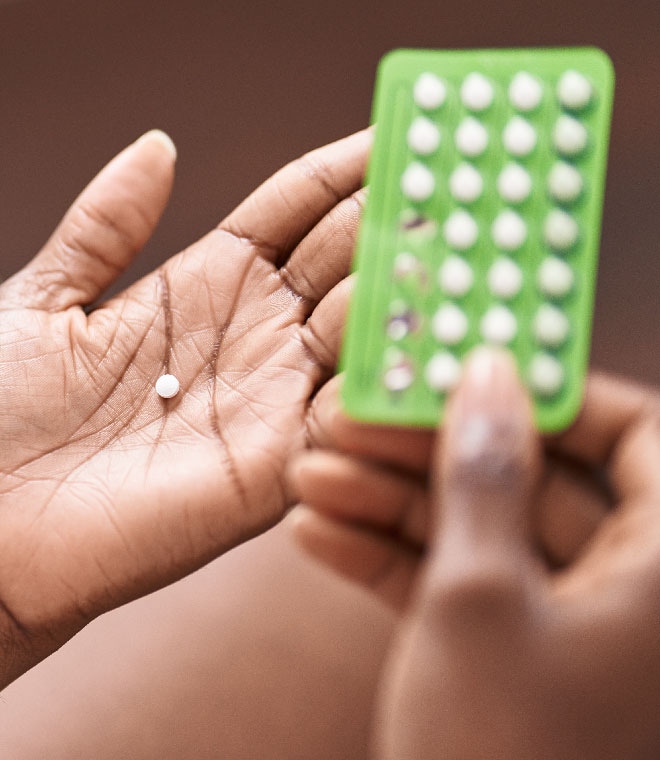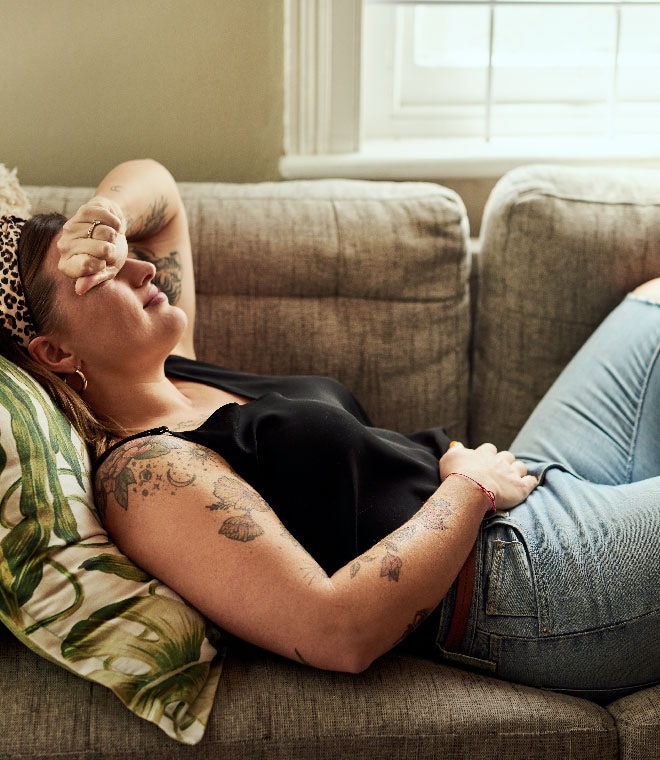Health
How to reduce breast pain before a period
By Patricia Ann Convery, MD, Fellow, American College of Obstetrics and Gynecology Aug 03, 2023 • 5 min
Breast pain, known by the medical term mastalgia, can be an uncomfortable sign that your menstrual period will begin soon. Fortunately, you can take steps to alleviate discomfort through self-care, and there are treatments available for persistent breast pain related to the menstrual cycle.
What causes breast pain related to periods?
Hormones are most often the cause of breast pain that occurs before a period. Healthcare providers refer to this type of breast pain as cyclical.
During the latter half of the menstrual cycle, shifts in hormone levels affect the milk glands and/or ducts within the breasts, leading to pain and tenderness. In some cases, noncancerous cysts develop due to these changes and contribute to discomfort.
Women may develop cyclical breast pain during or after ovulation, and the discomfort may persist until they get their periods and the menstrual cycle restarts.
Self-care for breast pain before your period
To reduce breast pain before a period, follow these self-care tips.
Modify your diet
Making changes to your diet may help ease breast pain related to your menstrual cycle. Caffeine found in energy drinks, coffee, tea, chocolate and some over-the-counter medications can worsen breast pain during your period, so try avoiding these products. Diets high in sodium and fat have also been linked to an increased risk for breast pain, so read labels carefully to control your intake.
Manage stress
Premenstrual breast pain may worsen during periods of stress, so find ways to unwind. Exercise can be a great stress reliever, as can enjoying hobbies, listening to music and laughing at a funny television show or movie. Deep breathing, meditation and journaling may also be beneficial for reducing the effects of stress.
Wear a bra that fits you well
Ensuring that your breasts are well-supported can help ease discomfort. During the days leading up to your period, wear a full-coverage, supportive bra that is the right size for you. During exercise, opt for extra support by wearing a sports bra.
Try hot and cold therapy
Warm and cold compresses can help alleviate tenderness and pain related to your menstrual period. Use a hot water bottle, heating pad, heat wrap or ice pack as needed.
Use over-the-counter pain relievers
As long as your healthcare provider approves, you can use over-the-counter pain relievers, such as nonsteroidal anti-inflammatory drugs (NSAIDs), to reduce discomfort. There are also creams that you apply directly to your breasts.
Treatments for period-related breast pain
When breast pain is intense or doesn’t resolve with self-care alone, your healthcare provider may recommend a prescription medication. These may include:
- Birth control pills to help regulate your hormone levels
- Diuretics to reduce water retention that contributes to breast tenderness
- Hormone blockers like tamoxifen or bromocriptine
- Progestin hormone shots given every 90 days to stop menstrual periods
- Danazol, a male sex hormone
Which medication is right for you will depend on your age, health history and the severity of your symptoms.
Is breast pain before a period normal?
Breast pain before a period is usually not a cause for concern. However, you should consult your healthcare provider if:
- Pain occurs daily for more than two weeks
- Tenderness is located in one specific area
- Pain worsens over time
- Discomfort interferes with your sleep or daily activities
- You feel a lump or notice changes in the size or appearance of your breasts
Your healthcare provider can conduct a physical exam and order imaging tests, such as an ultrasound or mammogram, to diagnose the cause of your breast pain and recommend the right self-care techniques and menstrual pain relief treatments to address the discomfort.
Published August 2023.
Sources:
- https://www.hopkinsmedicine.org/health/conditions-and-diseases/mastalgia-breast-pain
- https://www.urmc.rochester.edu/encyclopedia/content.aspx?contenttypeid=85&contentid=P00154
- https://www.mayoclinic.org/diseases-conditions/breast-pain/symptoms-causes/syc-20350423
- https://www.mountsinai.org/health-library/symptoms/premenstrual-breast-changes
- https://www.cdc.gov/emotional-wellbeing/features/reduce-stress.htm
- https://newsnetwork.mayoclinic.org/discussion/home-remedies-tending-to-breast-tenderness/




